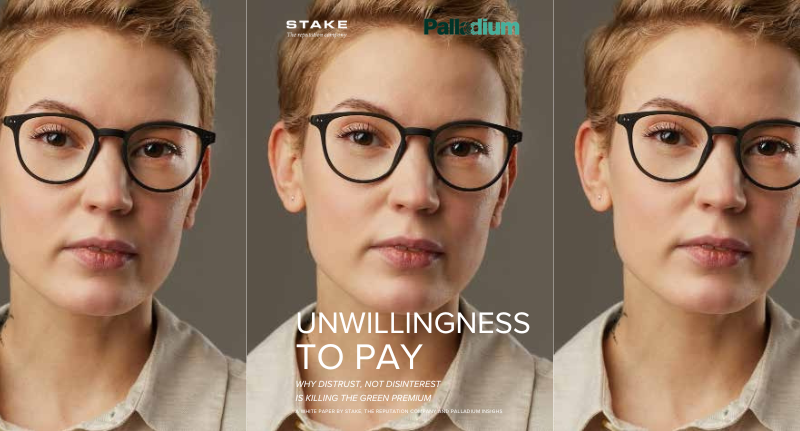New research has revealed that Australian and New Zealand consumers reject the idea that shoppers should fund corporate sustainability efforts through higher prices.
A study of more than 2200 people found that 65 percent of Australians and 63 percent of New Zealanders believe businesses should absorb sustainability costs by reducing profits, not by passing them on to consumers.
Only 22 percent of Australians and 17 percent of New Zealanders believe shoppers should pay.
More concerning for companies is the finding that 74 percent of Australians and 66 percent of New Zealanders support government regulation if brands fail to act voluntarily.
The results point to rising regulatory risk for businesses that delay sustainability action.
“This research exposes a fundamental miscalculation in how Australian businesses have approached sustainability pricing,” said Matt Thomas, Founder of Stake The Reputation Company.

“CMOs have been building strategies on consumer sentiment that no longer exists.”
When purpose meets reality
The study challenges a decade of purpose driven marketing. Except for the most sustainably motivated segment, which represents 19 percent of Australians and 17 percent of New Zealanders, sustainability ranked fifth or lower when competing against price, quality and functional product benefits.
The research used MaxDiff trade off analysis, a method designed to reveal real consumer choices rather than stated values.
“We are measuring what people actually choose when forced to trade off,” said Steph Karayannis, Founding Partner at Palladium Insight.

“And the gap between stated values and revealed preferences is enormous. People care about sustainability until cost or product quality intervenes.”
Even among those willing to pay more for sustainability, tolerance capped out at an average of 4 to 5 percent, which is not enough to cover most operational changes.
With 47 percent of Australians and 55 percent of New Zealanders citing affordability as their primary barrier, cost of living pressure is reshaping consumer priorities.
“The question for CMOs is no longer how do we monetise purpose,” Thomas said. “It is how do we embed sustainability without triggering consumer backlash or regulatory intervention.”
The trust deficit
Across the 15 sectors analysed, the study found a consistent pattern of high expectations but low trust. Grocery retail showed a strong emphasis on sustainability, yet only a small portion of consumers believed the industry would use additional funds responsibly.
Mining faced the widest credibility gap, with sustainability considered highly important but trust at the lowest level of all sectors surveyed.
Energy also ranked high in environmental importance but low in perceived trustworthiness, while the technology sector showed a similar divide between strong consumer expectations and limited confidence in how companies handle sustainability claims.
“High expectations plus low trust equals regulatory exposure,” Karayannis said.
“These sectors face the greatest pressure to redesign their approach before the government forces their hand.”
A new sustainability playbook
Stake and Palladium created the study after observing that brands investing in sustainability credentials struggled to turn them into commercial advantage or meaningful trust.
“As new consultancies, we are building our practices around the problems clients are actually facing, not historical models,” said Karayannis.
“This research gives CMOs the empirical foundation to redesign their approach before the market punishes them for getting it wrong.”
“The era of sustainability as brand theatre is over,” Thomas said.
“Businesses need to shift from premium pricing strategies to operational embedding of sustainability funded through margin absorption and efficiency gains.”
He added that companies that recognise this shift early will define competitive advantage over the next five years.
